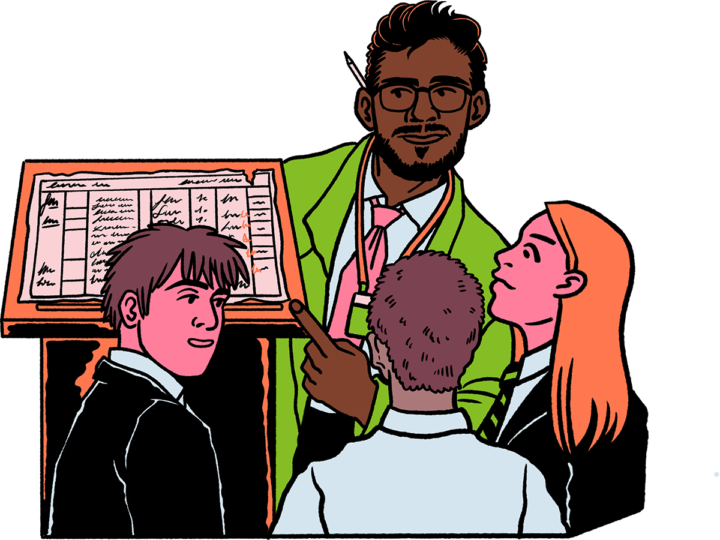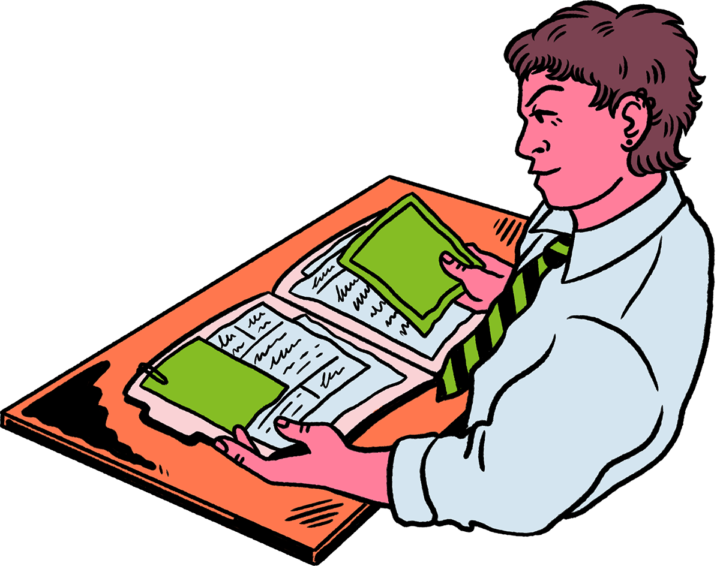
The National Archives looks after the UK government’s documents. It holds records dating back nearly 1,000 years from the time of William the Conqueror’s Domesday Book to the present day. Some very famous documents created by some of the most important and significant people in the past are kept here, including Shakespeare’s will, Guy Fawkes’ signed confession and the 1225 version of Magna Carta. The range of documents includes letters, reports, newspapers, photographs, maps, posters and even a mummified rat.
We hold approximately 11 million documents kept on about 100 miles of shelving. This shelving grows by at least a mile each year, as more and more documents are handed over to the archives by various government departments. In recent years, we have started to keep some of our documents in deep salt mines in Cheshire, in an attempt to save space at Kew.

Finding what you need
People visiting the archives don’t have to search the shelves to find what they are looking for. Instead they can use Discovery our online catalogue to search for the records that interest them, and order these documents straight to their desks in the public reading room.
It is important to note that documents are catalogued with the working titles that the government departments gave them, so to search the catalogue requires some creative thinking. When researching, try to:
- think flexibly about the subject in question
- consider whether the event or country concerned has changed its name over time
- use keywords (names, places relevant to the government at the time)
You can also bring your own camera or tablet to the archives to take your own pictures of documents which you are then free to use at home or in the classroom, though we also have copying machines for the use of readers and offer a professional copying service.

A level personal study
In history A level, personal study is a taught option, and all candidates must choose something from within the century or framework of a module they have been taught. The National Archives is an excellent place to carry out research for this and work with original sources. Similarly students who are completing the Extended Project Qualification on a historical topic of their choice may also use the National Archives for their research. Here are our tips for your personal study:
- Choose a valid historical issue that interests you and that is not too narrow or too general
- The wording of your investigation question is absolutely central to a successful study. The exam board AQA stresses that it should always be in the form of a question like ‘how far’ or ‘to what extent?’ This approach will allow you to show the examiner your ability to evaluate, analyse and conclude. It will also help you to focus on concepts rather than narrative description
- Make sure there is enough primary and secondary material to allow you to study in depth – textbooks, biographies, diaries, documentaries, films, historical sites, letters, maps, paintings, novels, newspapers and museum displays
- Show you can select, interpret and evaluate sources (primary and secondary)
- Make sure you reference all of your documents to ensure you can evaluate it effectively
- Present a consistently analytical response to the question posed by the study
- Offer interpretations of events and reveal the context in which ideas are produced
- Show awareness of the main debates of the issues involved
- If you have chosen to write about a figure in history, always consider their social and political context and assess your person’s historical significance
- Organise your material to produce a well-structured piece of work
- Focus on communicating ideas well to present a cohesive argument
- Draw your own conclusions supported by evidence
- Produce a study with a bibliography listing all sources, books and articles you used. Add appendices and footnotes where appropriate
- Study previous examples of good practice if your teacher has them
- Seek the advice of your teacher, within reason. The object of the exercise is to show that you can work independently
We also run independent research on site at Kew to support your research.